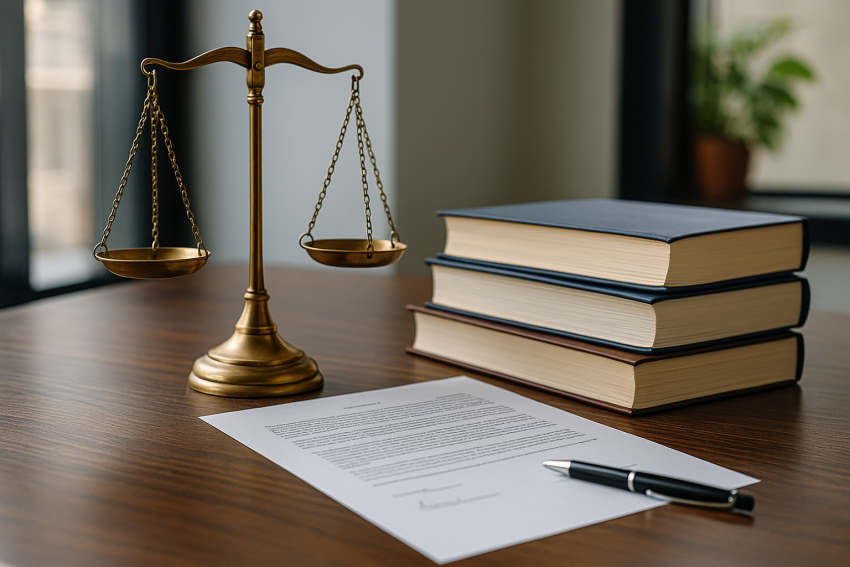Legal Translation: How to Protect your Contracts and Official Documents Abroad

Legal translation plays a strategic role in protecting the interests of companies and individuals on the international stage. In a world where trade, partnerships, and contractual obligations extend far beyond borders, it is essential that official documents are clear, valid, and enforceable in the language of the relevant country.
Índice de contenidos
Index of contents
Index du contenu
Inhaltsverzeichnis
Indice dei contenuti
Why is Legal Translation Crucial Overseas?
Legal translation isn't just about switching words from one language to another. It requires a deep understanding of legal concepts, the legal culture of the countries involved, and their regulatory frameworks. It is not enough for a document to be understandable; it must also have the same legal effect in the target language as it does in the source language. Put simply, the translator serves as a vital link connecting two often very different legal systems. Even when a document is meant for a single legal system, getting the translation wrong can put its validity at risk. A misinterpreted clause, a poorly translated legal term, or a misunderstanding of a contractual obligation can have real consequences: disputes, partial nullity of the contract, regulatory sanctions, or even the rejection of an administrative application.
Legal translation is therefore essential, not only in an international context but also to ensure that the law is properly applied within a single jurisdiction. In the European Union, for instance, translations must maintain legal equivalence between language versions to ensure the same legal scope. In the United Kingdom, where common law prevails, any ambiguity in a translated contract can jeopardise its validity. Other jurisdictions, such as Canada or Morocco, also enforce strict rules depending on the type of document and the official language of the territory.
Which Documents Require Legal Translation?
Documents most commonly requiring legal translation include commercial contracts, company statutes, court judgments, notarised deeds (wills, powers of attorney, property deeds), as well as civil status certificates. It is also common to need translations of intellectual property documents, particularly patents filed in multiple countries.
These documents require accuracy, thoroughness, and a deep understanding of the legal systems of both languages. In some cases, a simple translation may be enough for internal understanding. However, whenever a document is intended for official use, a certified or sworn translation is essential.
Who Can Provide a Reliable Legal Translation?
In addition to practical experience, certain degrees and certifications enhance the credibility of legal translators. In the United Kingdom, for example, a Master's degree in specialised translation or in law applied to translation is highly valued. Internationally, certifications issued by professional bodies such as the ATA (American Translators Association), the CIOL (Chartered Institute of Linguists), or ISO standards also serve as markers of quality. These qualifications ensure that the translator is proficient not only in the languages but also in the legal frameworks and sector-specific terminology.
Choosing the right provider for a legal translation should not be taken lightly. In some countries, such as France and Spain, sworn translators appear in official lists, for which they must pass an official exam, and swear an oath before a judicial authority. This is not necessary in the United Kingdom and the United States, although certification is often required through a translator's declaration guaranteeing the accuracy of their work.
A translation agency specialising in legal translation can usually provide experienced professionals who are well-versed in relevant legal fields and compliant with ISO 17100 standards. To guarantee reliable results, check that your provider has the following skills:
- Proficiency in legal terminology across both languages
- Knowledge of local legal systems
- Proven experience in similar translations
Ensuring the Confidentiality of Your Legal Documents
Confidentiality goes beyond a simple moral commitment. It relies on strict procedures and technical measures, including restricted file access, encrypted communications, secure data hosting. A specialised legal translation agency will have implemented these protocols, accompanied by confidentiality agreements signed by each team member. This kind of meticulous approach is what sets a trusted partner apart from an amateur service.
It also ensures the traceability of operations and compliance with security standards, such as the National Cyber Security Centre (NCSC) guidelines in the United Kingdom or international standards. This helps protect your sensitive data from leaks or misuse.
Typical Process of a Legal Translation: Steps and Deadlines
A typical process always begins with a detailed analysis of the document and the legal context in which it applies. The client provides all the necessary information, including the purpose of the document, the relevant jurisdiction, the intended recipients, and any specific requirements (such as formatting, legal notices, or certifications). Based on this information, a specialised translator is assigned to the project.
The translation is then carried out taking into account legal equivalences, the expected writing style, and the specific requirements of the target language. This is followed by a revision phase, carried out by a second expert who checks that the translation remains true to the original, as well as ensuring terminological consistency, and the accuracy of legal references. If necessary, a final check can be performed by a lawyer or notary, particularly for documents with direct legal implications.
The file is then prepared for official delivery, with checks on layout, signatures, any required stamps, and mandatory statements. Depending on the country, the documents may need to undergo certification, legalisation, or an apostille, potentially extending delivery times. Turnaround times can range from 24 hours to several days, depending on the complexity, length, and level of certification required.
To safeguard your international projects, it's best to work with a professional translation agency in the legal field. By choosing experts in legal translation, you can be confident that your documents will be handled with precision, compliance, and discretion. This provides an important layer of protection against the legal challenges posed by cultural, linguistic, and regulatory differences between countries.
Other articles you may be interested in:

Assistant marketing chez Abroadlink, Djobdi SAÏDOU est actuellement en deuxième année de Master Langues Étrangères Affaires Internationales à l'Université de Lorraine. Il est également titulaire d'une licence de langues étrangères appliquées.



Add new comment